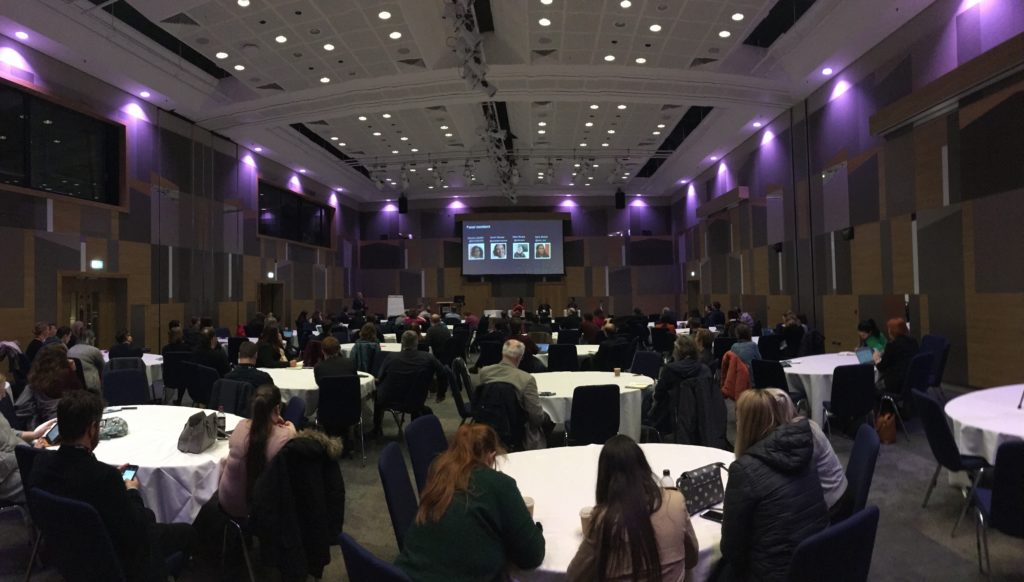
This is one of those weeks where I’m going to do the inadviseable thing and blog at least twice, because I’ve got stuff to say. Remember when there were rules about when you were “supposed” to blog so that people could find and read your stuff? I guess I never paid much attention, in part because blogging swiftly became a means for me to sort through my own thoughts (and if people read along, that was great, but not always necessary for it to be useful..).
ANYWAY.
Those of you who have been following along at home might recall that Lawrie Phipps and I conducted research last year on teaching practices in HE and FE in the UK, and we presented on the project last Fall, and just recently have published one Journal article and one white paper based on that work. We handed out a very nicely Jisc-produced executive summary of our work earlier this month in Birmingham, and there’s a pdf here for anyone who wants to see it.
The reason we had a chance to distribute the executive summary was because #Digifest19 was going on, and during that event Lawrie and I had a chance to facilitate a panel discussion based on our work. We are extremely grateful to our panelists, Sarah Davies (recently of Jisc, and now Director of Education Innovation at the University of Bristol), Nikki Rivers (Lecturer in English Literature at the University of Gloucestershire), and Sara Berkai (research assistant at UCL and former student in the School of Management there), for offering their insights from their particular positions in the sector. We are also grateful to Steve Rowett of UCL who recorded the discussion for us, which is available for viewing or listening to here. (We are working on getting a transcript for this thank you for your patience). Lawrie and I additionally owe our thanks to the people in HE and FE whom we interviewed, we are grateful that they gave us their time and thoughts for the sake of this project.
I was so pleased not just in the engagement with our work by our panel, but also from the people in the room. We were rightfully called on the lack of FE representation in our panel, even though we had FE representation in our research, and really needed that perspective. In a context where speakers are not offered travel expenses or other compensation, getting folks from FE (or less well provisioned parts of HE) to any event is going to continue to be a challenge, and we definitely need to do better, and demand better of organizations who sponsor and put on such events. We were asked about what we were going to do next, now that this particular piece of the work is done, and I’m pleased we have an answer for that: we’re going to do more research on teaching AND LEARNING practices, this time with UCL.
UCL are embarking on a Digital Learning Environment review and as a part of that work they have brought me in to train a team to conduct in-depth interviews with students about their learning practices, and staff about their teaching, and then to assist with the analysis and write up of that data. The preliminary work we have done composing and refining our interview instruments promises a great deal of rich information that will build nicely on the work that Lawrie and I have already published. It is my fervent hope that the insights from qualitative work such as this can start to answer questions that surveys are never going to answer, will start to illuminate why people are interacting with systems (or not) and how choices around analog or digital practices are situated in larger material and organization contexts. University policies that emerge from a grounding in genuine insight into behavior are exciting to contemplate. I have always admired UCL’s intentions around teaching and learning work (and have happily had UCL as a field site not once but twice before), and am grateful (once again, that is the real theme of this blogpost) to Steve Rowett for bringing me in to do the work as well as to Sara Berkai for being a key part of the research team.(as well as an ace panel discussant). I am pleased and excited about this new work, and look forward to reporting on what happens once we’re further along into the process.